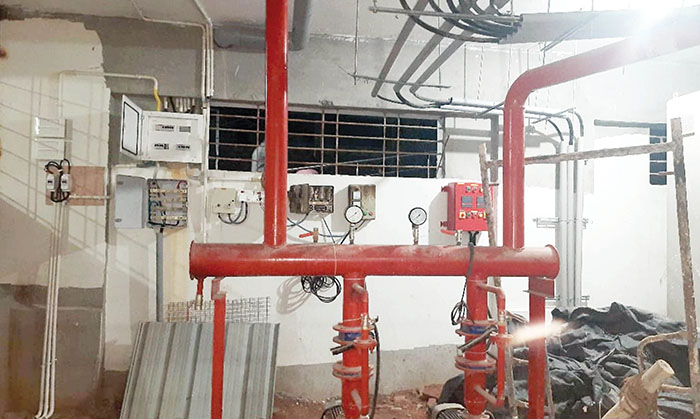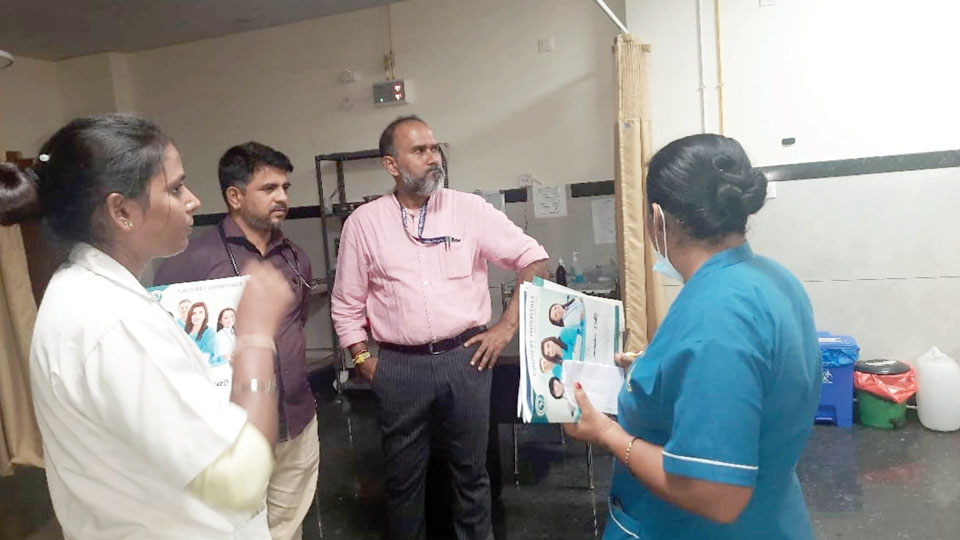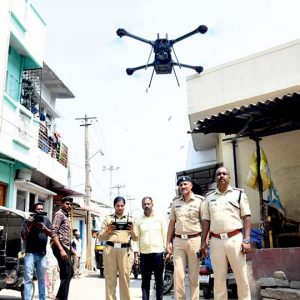Mysore/Mysuru: The recent fire tragedies at a gaming zone in Gujarat’s Rajkot and a children’s hospital in Delhi, resulting in the loss of at least 40 lives, including seven newborns, within a 24-hour period, have brought the focus onto fire safety regulations and the urgent need for strict enforcement of safety protocols, particularly in public buildings such as hospitals, which are vulnerable to man-made disasters.
Existing norms emphasise the importance of regular compliance with fire safety measures in all public buildings and hospitals. According to Dr. P.C. Kumaraswamy, the District Health Officer (DHO) of Mysuru, fire safety measures have been implemented across hospitals in the Mysuru district, including the District Hospital on KRS Road.
To efficiently oversee and enforce fire safety measures throughout the district, the DHO has established a District-level Committee and Taluk-level Committees. The District Committee, led by the DHO and the Taluk Committees, led by the respective Taluk Health Officers, are tasked with visiting hospitals to assess fire safety measures.
The DHO said that the objective is to gather first-hand information about fire safety measures, equipment readiness, preparedness and staff training for managing fire emergencies.
“We will address any deficiencies identified and offer necessary assistance to implement public safety measures,” he said.
At the District Hospital, various fire extinguishing equipment, including hydrants, hose reels, dedicated water tanks, and fire alarms, have been installed, along with hand-held fire extinguishers strategically placed within corridors. Dr. Kumaraswamy stated, “In the event of a fire, provisions have been made for the safety of patients and staff, with designated areas identified for the people to assemble and evacuate.”
Furthermore, all staff members have undergone training to effectively respond to fire incidents using the equipment provided, and specialised teams have been established to manage such situations, DHO said.
At Taluk Hospitals such as Nanjangud, H.D. Kote, K.R. Nagar and T. Narasipur, along with nine Primary Health Centres, comprehensive fire audits have been carried out. Reports have been obtained to evaluate the level of preparedness and identify necessary equipment to address fire emergencies, Dr. P.C. Kumaraswamy explained.

All areas of hospitals covered
“The assessment covers all areas of the hospitals, including treatment zones, emergency care units, surgical departments, inpatient and outpatient departments. Fire extinguishing equipment has been strategically placed according to the grading system A, B, and C and the staff has received fire training,” he said.
The District Health Officer further emphasised that fire safety protocols have been implemented across all 146 Primary Health Centres in Mysuru District. Staff members have undergone training to manage fire emergencies effectively.
KPME Act stipulation
Dr. Kumaraswamy clarified that, “Under the Karnataka Private Medical Establishment (KPME) Act, which serves as the licensing authority for healthcare facilities, obtaining certifications for fire prevention measures is mandatory before establishing a healthcare facility. These regulations also apply to facilities whose licences are subject to periodic renewal. The KPME team conducts inspections of healthcare facilities before issuing permits.”
Even under the National Accreditation Board for Hospitals & Healthcare Providers (NABH) norms, obtaining a No Objection Certificate (NOC) from the fire department is mandatory for all healthcare service providers. Compliance reports are issued only when healthcare providers adhere to the provisions of the National Building Code 2016, which outlines guidelines for the installation of fire safety measures, he added.








Recent Comments